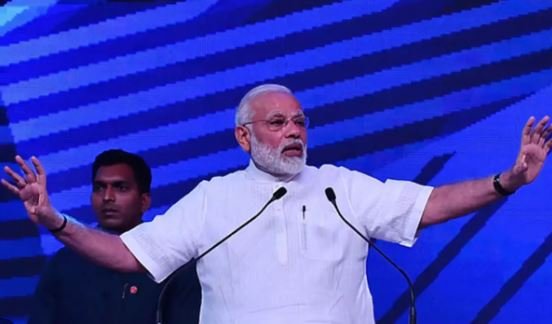Prime Minister Narendra Modi emphasized on Saturday that the pursuit of power at the expense of national interest had severely impacted India’s banking sector during the UPA government. However, his administration successfully restored the sector’s financial health through a series of measures. Speaking at a Rozgar Mela where over 70,000 recruits received appointment letters virtually, PM Modi highlighted the banking sector’s remarkable turnaround under his government’s corrective actions. He praised the employees for their dedication in implementing various government schemes, such as providing loans under the ‘Mudra’ scheme and supporting women self-help groups.
PM Modi pointed out the previous government’s “phone banking” scam, where large loans were granted to favorites of powerful individuals without any intention of repayment. His government, on the other hand, took decisive steps to strengthen banks’ management, merge small banks, and introduce professionalism to aid the sector. As a result, public sector banks that were once notorious for losses and non-performing assets (NPAs) are now known for record profits.
He also highlighted how India’s growing global trust and attraction present numerous opportunities in various fields. India’s banking sector has significantly improved, a stark contrast from nine years ago when it faced destruction due to the greed for power over national interest. To protect banks from NPAs, the government implemented laws such as the Insolvency and Bankruptcy Code and took stringent actions against those involved in swindling banks.
The prime minister assured the young recruits that their future is intertwined with the nation’s progress as it aims to become a developed country. He emphasized the rise of India’s economy under his government’s tenure, and experts predict it may soon become the third-largest global economy. This growth will generate employment opportunities across sectors and increase citizens’ income.
PM Modi lauded the government servants’ efforts in uplifting millions of Indians from poverty through various welfare measures. He stressed the significance of the neo-middle class, which is driving the manufacturing sector with their increasing demand and aspirations. India’s young population holds great potential, and the government has focused on enhancing their skills through the establishment of more professional education institutes.
As the nation marks a historic day when the ‘Tiranga’ was adopted in its current form in 1947, PM Modi emphasized the crucial role of government employees in shaping India’s future and eliminating poverty from the country. He expressed confidence in India’s potential to achieve monumental progress in the coming years, creating new opportunities and a prosperous future for its citizens.













